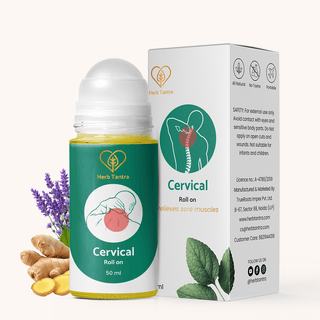Introduction
Migraines affect many people daily, and their frequency and severity can sometimes feel overwhelming. One factor that plays a big role is our everyday diet. When your daily food choices send unexpected signals to your body, they may worsen migraine episodes. Today, we take a closer look at how a balanced diet and smart food choices can help manage migraine triggers while offering natural remedies.
What’s the Link Between Diet and Migraine?
The relationship between a person’s diet and migraine is complex. Your daily food intake might influence both the frequency and severity of your headaches. Many people notice that certain foods or eating habits can act as migraine triggers. In simple terms, the diet you follow may either worsen your symptoms or help you stay protected.
How Does Your Daily Food Intake Affect Migraine Frequency and Severity?
Changes in your diet affect the balance of chemicals in your brain. Fluctuations in blood sugar, hormones, and inflammation levels can contribute to migraine pain. Poor eating patterns or an imbalanced diet may increase the number of migraine triggers you experience. For example, skipping meals or eating processed food may disturb your blood sugar balance, possibly setting off migraine attacks.
What Foods Are Common Migraine Triggers?
Certain foods have long been known to spark migraine attacks in some people. Below is a table that lists common migraine triggers, along with the reasons they might cause a reaction:
|
Food Item |
Reason for Trigger |
|
Aged Cheese |
Contains tyramine, which can affect neurotransmitters and trigger migraines |
|
Processed Meats |
High in nitrates, which can dilate blood vessels and lead to headaches |
|
Caffeine |
Sudden changes in consumption can disrupt blood flow, triggering migraines |
|
Alcohol (Red Wine) |
Contains histamine and sulfites, known to cause inflammation |
|
Artificial Sweeteners |
May alter brain chemistry, potentially increasing migraine susceptibility |
|
Chocolate |
Contains caffeine and tyramine, both known to affect the brain and cause migraines |
Paying attention to your food choices and monitoring how each may influence your body can be essential. A diet that minimizes these migraine triggers gives you a chance to reduce the number of headaches you experience.
Anti-inflammatory Foods That Naturally Calm Migraine Attacks
Not all foods worsen migraines—some can actually help calm them. Anti-inflammatory foods work as natural remedies that may ease migraine attacks by reducing inflammation and promoting better brain health.
|
Food Item |
How It Helps Calm Migraine Attacks |
|
Leafy Greens |
Rich in antioxidants that help lower inflammation |
|
Berries |
Packed with vitamins and polyphenols that fight inflammation |
|
Fatty Fish (like salmon) |
High in Omega-3 fatty acids, which reduce overall inflammation |
|
Nuts & Seeds |
Provide magnesium and healthy fats that support nerve function |
|
Whole Grains |
Offer stable energy and help prevent blood sugar dips that may trigger migraines |
Integrating these anti-inflammatory foods into your diet can support natural migraine relief and assist in keeping your brain chemistry balanced.
How Irregular Eating Patterns Disrupt Your Brain Chemistry
Irregular eating patterns often contribute to migraine triggers in several ways. Here are some common disruptions caused by inconsistent food intake:
-
Skipping meals can lead to drops in blood sugar, triggering migraine pain.
-
Inadequate hydration and erratic eating times may disturb digestion, causing stress in the body.
-
Overeating or consuming heavy meals late at night can disturb sleep, indirectly heightening migraine frequency.
-
A lack of essential nutrients from an unbalanced diet may weaken overall body resilience against migraine triggers.
Keeping a regular eating schedule and opting for nutrient-rich food can support stable brain chemistry, reducing the chance of migraine attacks.
What Nutrients Are Key to Preventing Migraines?
Certain nutrients play a protective role in preventing migraines. Including these in your diet is an important step toward reducing migraine triggers and obtaining natural remedies that work.
Magnesium, Riboflavin, Omega-3s – Natural Nutrient Defenders
Research suggests that specific vitamins and minerals can help lessen migraine episodes. Here’s a table summarizing some key nutrient defenders:
|
Nutrient |
Function in Migraine Relief |
|
Magnesium |
Helps relax muscles and reduce neuronal hyperexcitability |
|
Riboflavin (B2) |
Supports energy production within brain cells |
|
Omega-3 Fatty Acids |
Fights inflammation and supports overall brain health |
These natural nutrient defenders work best when included regularly in your diet. Low levels of magnesium or riboflavin have been linked with a higher sensitivity to migraine triggers.
Foods Rich in Migraine-Preventing Nutrients
Pay attention to the following pointers when planning your meals. These food choices pack a nutrient punch:
-
Spinach, kale, and other leafy greens provide magnesium and riboflavin.
-
Fatty fish like salmon, mackerel, and sardines are excellent sources of Omega-3 fatty acids.
-
Avocados and nuts not only supply healthy fats but also important vitamins.
-
Whole grains and legumes offer complex carbohydrates and fiber to maintain steady energy levels.
-
Dairy alternatives like almond milk can provide additional magnesium without common migraine triggers.
By incorporating these foods into your diet regularly, you support your body’s natural capacity to fend off migraine triggers. In addition to adjusting your diet, remember that natural remedies for migraines often have a multifaceted approach.
Maintaining a Balanced Diet for Migraine Relief
A balanced diet does more than simply prevent migraine triggers; it nourishes overall brain health and supports mental clarity. Here are a few suggestions to maintain a healthy diet and keep migraine triggers at bay:
-
Plan meals. Consistency helps maintain stable blood sugar levels.
-
Include a variety of anti-inflammatory foods throughout the day for a well-rounded nutrient intake.
-
Incorporate small, frequent meals to avoid ups and downs in energy.
-
Stay hydrated. Drinking enough water is as much a part of a good diet as the food you choose.
-
Monitor your body’s reactions. Sometimes, even healthy food may cause unexpected migraine triggers based on individual sensitivities.
Small changes in your daily diet can lead to significant improvements in managing migraine frequency and severity. Adjusting your food habits and incorporating natural remedies might help you experience fewer intense migraine attacks.
For further ideas on natural wellness strategies, exploring related products might offer additional support options.
Conclusion
Your diet plays a crucial role in managing migraine frequency and severity. The food you choose may either increase migraine triggers or provide natural remedies that help soothe your body during an attack. Embracing a diet rich in anti-inflammatory foods and vital nutrients can help you reduce the intensity of migraines naturally. Small changes in meal timing, regular intake, and mindful choices can lead to a calmer, more balanced state of well-being.
FAQs
Q1. Can meditation help with migraines?
Yes, meditation can be a helpful tool during migraine attacks. It encourages relaxation, supports stress reduction, and may indirectly ease migraine symptoms by improving overall well-being.
Q2. What techniques are effective for relaxation during a migraine?
Techniques like deep breathing exercises, guided meditation, and progressive muscle relaxation have proven effective. They help shift focus away from pain and promote a calming state that softens migraine triggers.
Q3. How do diet and food choices influence migraine triggers?
Food choices directly affect brain chemistry and can either spark or diminish migraine triggers. Certain food items may worsen inflammation, while a balanced diet featuring anti-inflammatory foods offers natural remedies for relief.
Q4. What are some common foods known to trigger migraines?
Common migraine triggers include aged cheese, processed meats, caffeine fluctuations, and alcohol. These items can trigger pain by interfering with neurotransmitter levels or causing blood vessel changes.
Q5. Are natural remedies effective for managing migraine frequency?
Many natural remedies, including a balanced diet rich in essential nutrients and anti-inflammatory foods, help manage migraine frequency. Maintaining consistent eating habits and including nutrient-rich food in your daily diet can play a significant role in reducing migraine attacks.

















